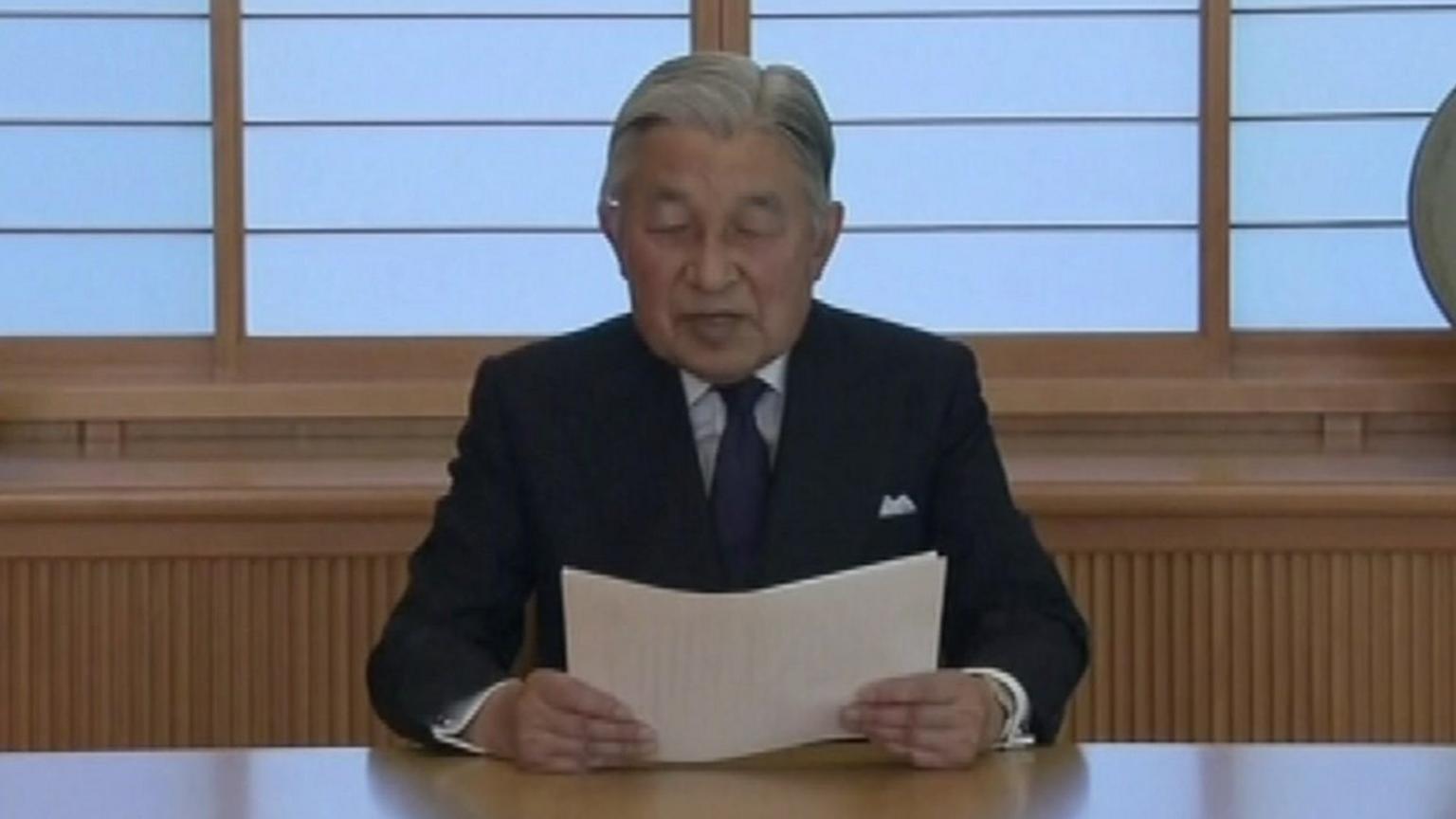Emperor Akihito: Japan's government approves abdication bill
- Published
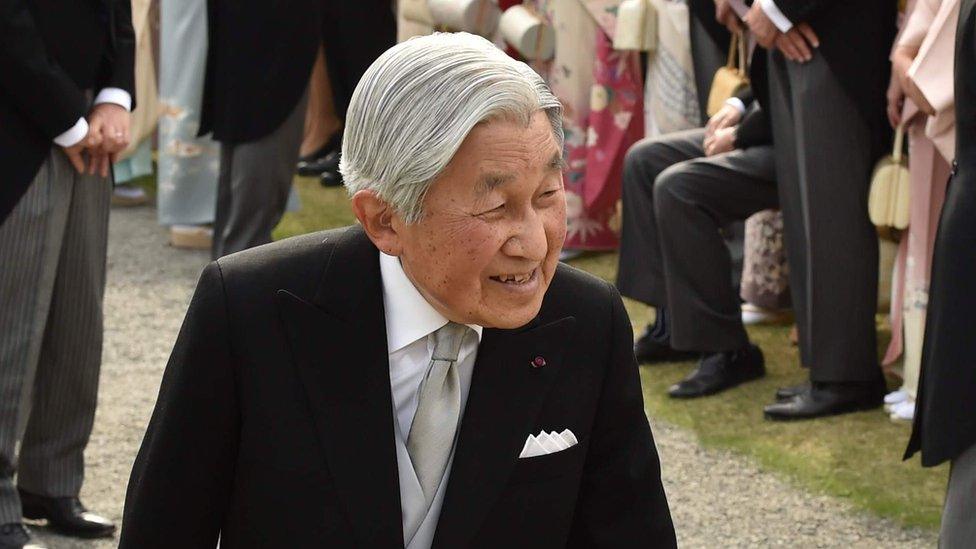
Japan's government has approved a one-off bill which, if passed, will allow Emperor Akihito to abdicate.
The 83-year-old emperor said last year that his age and health were making it hard for him to fulfil his official duties.
But there is no provision under existing law for him to abdicate and be succeeded by Crown Prince Naruhito.
The bill will now pass to the parliament, where it is widely expected to be passed.
It would be the first time a Japanese emperor has stepped down since Emperor Kokaku in 1817.
Chief Cabinet Secretary Yoshihide Suga told reporters on Friday that the government "hopes for the smooth passage of the legislation".
Akihito, who has had heart surgery and was treated for prostate cancer, has been on the throne since the death of his father, Hirohito, in 1989 and is loved and revered by many Japanese.
In a rare address to the nation in August, he said he was beginning to feel "various constraints such as in my physical fitness" which caused him to "contemplate on my role and my duties as the emperor in the days to come".
The emperor is constitutionally barred from making any comments on politics, so he could not say explicitly that he wanted to stand down.
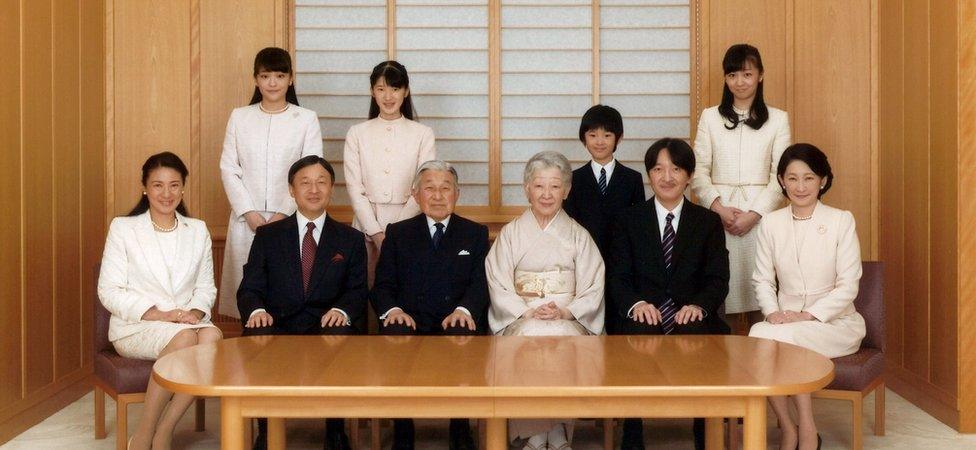
Crown Prince Naruhito (third from left) will take the Chrysanthemum Throne immediately after his father
The bill approved by the cabinet on Friday mentions the widespread public support for the emperor's wishes, Japanese media reported.
It says that on abdication, Crown Prince Naruhito would immediately take the Chrysanthemum Throne, but that neither he nor his successors would be allowed to abdicate under the same law.
The government will set the date for the abdication, which is expected to be in December 2018.

Dwindling household - By Rupert Wingfield-Hayes, BBC News, Tokyo
Japan's royal household has not always been so strict. Once emperors were allowed to retire. There have also been at least eight female occupants of the throne.
But in 1866 Japan underwent the "Meiji Restoration", a very Japanese revolution. The emperor was brought from seclusion in Kyoto and placed on the throne in Tokyo. He was declared a god-emperor. There would be no more female succession, and the god-emperor would reign for life.
In 1947, following Japan's defeat, the rules changed again. The emperor would now be an ordinary man with no political power. The size of the royal household was cut. In future any royal woman marrying a 'commoner' would leave the imperial household. But the rule on emperors serving for life stayed, and so did the ban on women ascending the throne.
Now we have an emperor who wants to retire, and a royal household rapidly dwindling in numbers. Of Emperor Akihito's four grandchildren, only one is a boy.
This week the engagement of Princess Mako, his eldest grandchild, was revealed. When she marries she will leave the royal family, as will her sister, Princess Kako, and her cousin, Princess Aiko. And so only Prince Hisahito, 10, will remain to carry on the 2,500-year-old imperial line.

Women are not allowed to inherit the throne and so Princess Aiko, the daughter of Crown Prince Naruhito, cannot succeed her father.
A debate about whether or not a woman should be able to ascend the throne was triggered in 2006 when the emperor had no grandsons, but was postponed after a boy was born to the imperial family.
The discussion about the role of royal women arose again when it was announced that Princess Mako, 25, was to be engaged to a commoner, law firm employee Kei Komuro.
Under Japanese law, she will have to give up her royal status and live as a private citizen after her marriage.

- Published19 May 2017
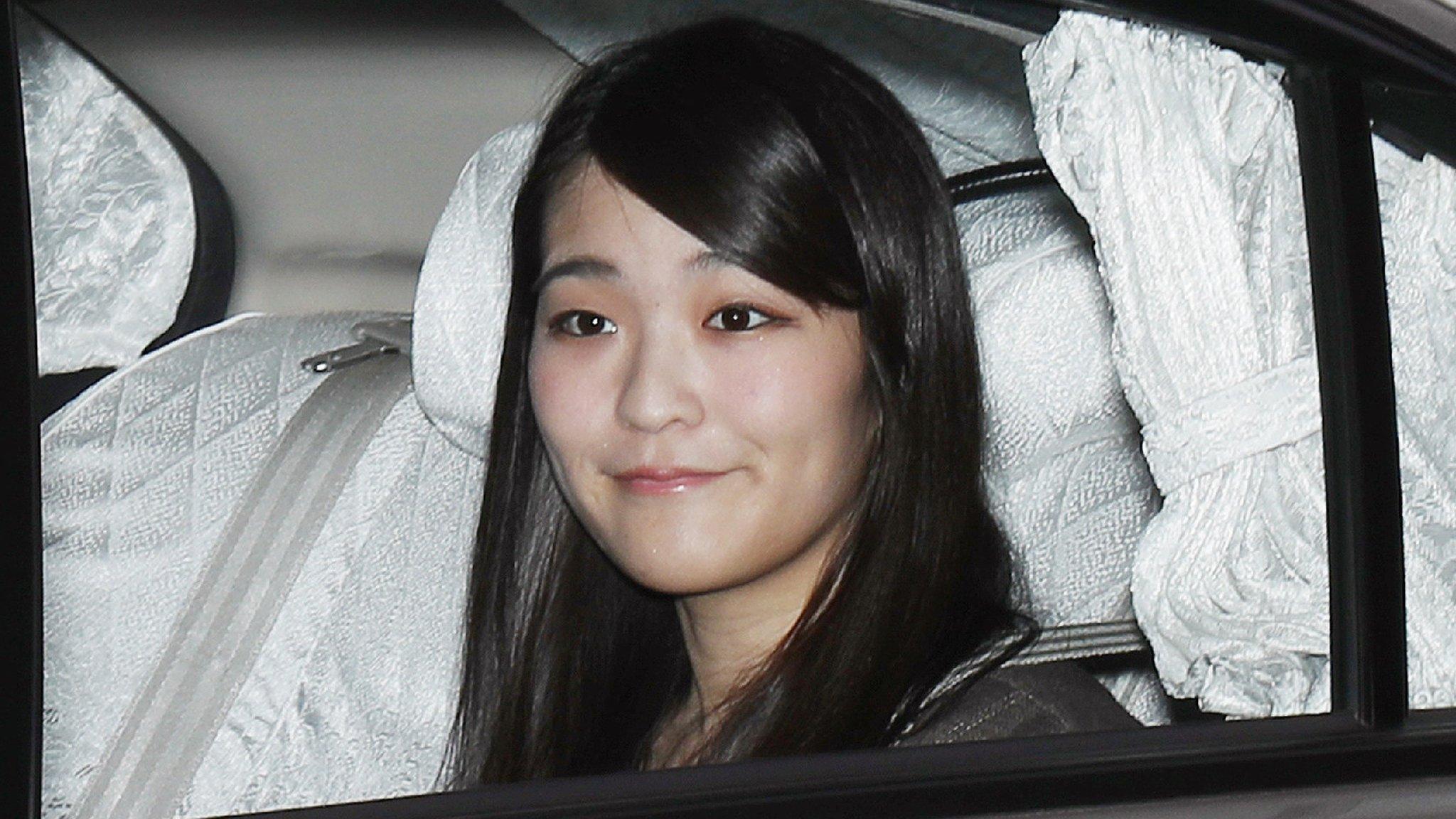
- Published8 August 2016
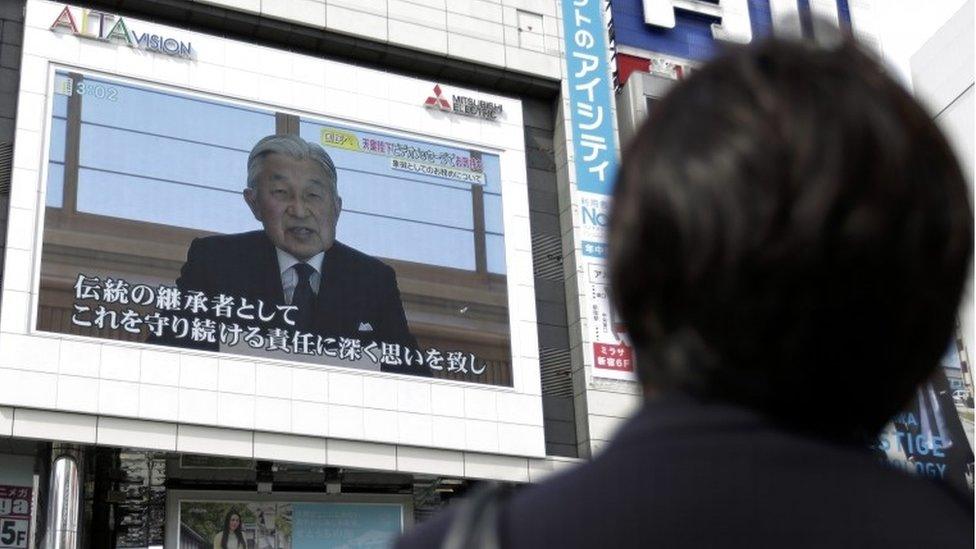
- Published30 April 2019
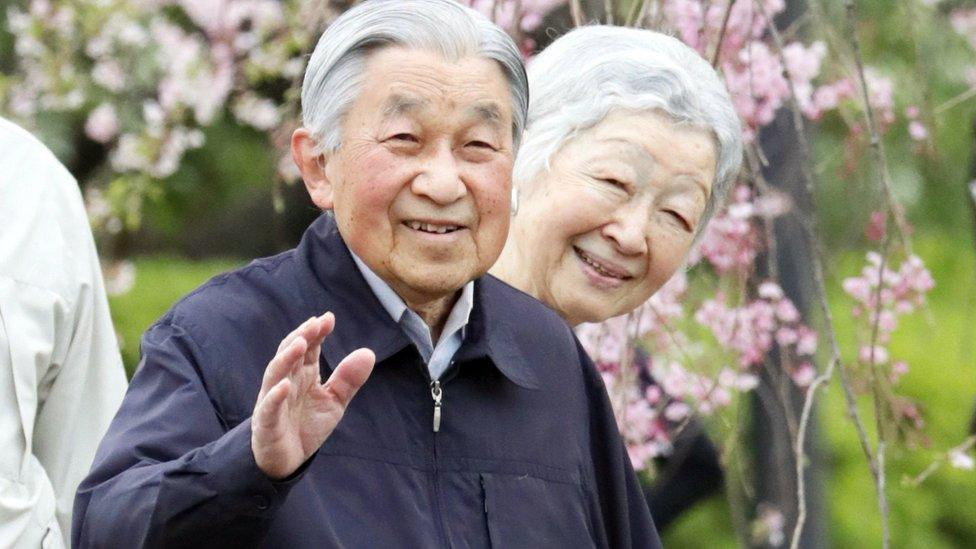
- Published8 August 2016
